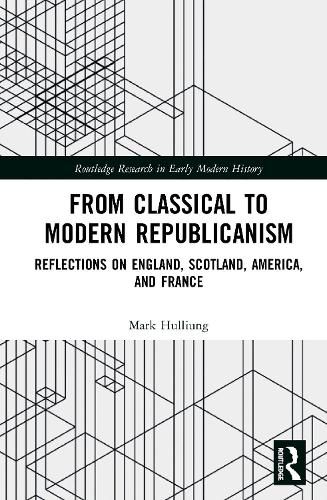Readings Newsletter
Become a Readings Member to make your shopping experience even easier.
Sign in or sign up for free!
You’re not far away from qualifying for FREE standard shipping within Australia
You’ve qualified for FREE standard shipping within Australia
The cart is loading…






In 1955 Louis Hartz published a volume titled The Liberal Tradition in America, in which he argued that liberalism was the one and only American tradition. Since then scholars of New Left and neoconservative persuasion have offered an alternative account based on the notion that the civic notions of antiquity continued to dominate political thought in modern times. Against this revisionist view the argument of From Classical to Modern Liberalism is that we need to study America in comparative perspective, and if we do so we shall discover that republicanism in the modern world was distinctively modern, drawing upon ideas of natural rights, consent, and social contract. Rather than a struggle between liberalism and republicanism, we should speak about liberal republicanism. Rather than republicanism versus liberalism, we should address liberalism versus illiberalism, the true issue of our age.
$9.00 standard shipping within Australia
FREE standard shipping within Australia for orders over $100.00
Express & International shipping calculated at checkout
In 1955 Louis Hartz published a volume titled The Liberal Tradition in America, in which he argued that liberalism was the one and only American tradition. Since then scholars of New Left and neoconservative persuasion have offered an alternative account based on the notion that the civic notions of antiquity continued to dominate political thought in modern times. Against this revisionist view the argument of From Classical to Modern Liberalism is that we need to study America in comparative perspective, and if we do so we shall discover that republicanism in the modern world was distinctively modern, drawing upon ideas of natural rights, consent, and social contract. Rather than a struggle between liberalism and republicanism, we should speak about liberal republicanism. Rather than republicanism versus liberalism, we should address liberalism versus illiberalism, the true issue of our age.